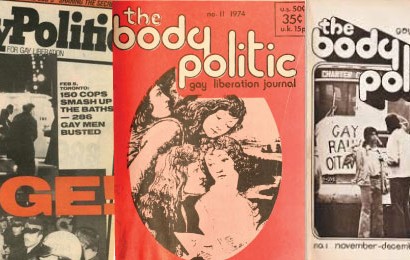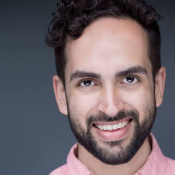We sent out one of our writers, JP Larocque, to chat with some of the artists in our upcoming 2015-16 Season. He caught up with Human Cargo’s Christopher Morris, co-writer and director of The Road to Paradise.
What was your creative seed for the play?
This all started for me when the war in Afghanistan began all those years ago. I knew I wanted to do a play about but not sure how, or what the way in was. Then in 2007 I heard an interview on CBC Radio with a woman from CFB Petawawa whose husband was serving in Afghanistan. I heard her talk about what she went through, what kids were going through in her community and I knew that was the way in. So I focused on the families and what they experienced, not on soldiers. I also decided that we should have families from all sides of the conflict, so I opened it up into exploring the stories of families from Pakistan and Aghanistan as well, including the Taliban.
How have the characters and story evolved over your time working on the piece? And what can the audience expect to see?
Since 2008, this play has had numerous creation developments/workshops. All of the material/characters in the play are based on people we met over the years and interviews we did with them. The play is divided into three sections and the characters in the Canadian section are based on people we know in CFB Petawawa. Developing this play brought me to Pakistan three times and twice to Afghanistan. During these trips we met families of the Pakistan and Afghan Army, as well as families of the Pakistani and Afghan Taliban. It was very wild doing this. One was a widow of a Taliban commander in Swat, Pakistan she is now the central character in the Pakistan section. I’ve attached an article that was written in the Globe an Mail a few years back. It talks about the project, but most importantly, Afghan actress Parwin Mushtael who I cast in this play back in 2008. The Afghanistan section of the play is based on her life and looks at the challenges of immigration, and the trauma that follows, similar to Kawa’s play The Wanderers (whom I went to Afghanistan with on my first trip).
The play has developed and changed quite a bit over the years. Its first production took place at Alberta Theatre Projects in 2013 under the title Dust. We have extensively re-written it since then. The Afghanistan section was originally going to be about families of the Afghan Army, but once the events unfolded regarding our Afghan actress, I changed it all to tell that story. An important question for me right now is making sure this story matters now, after the war has been “officially” ended, which it is not, it is still going on for everybody there, and we still have soldiers there. The Pakistan section takes place in a school in Pakistan that is attempting to rehabilitate captured child suicide bombers. A real place called Sabaoon. Which is Pakistan’s answer to the problem we’re starting to face with these young men and women heading off to fight for ISIS, and coming home.
The characters the audience will meet in the play are predominantly women and children, from three different countries, who are all reeling from the war, and are trying to make sense of their lives that are rapidly changing. In the cast is a famous actress we’re bringing over from Pakistan whose name is Samiya Mumtaz. She’s well-known in the South Asian community here.
How does this piece line up with the season’s theme of personal and collective histories? And how does it line up to the themes you often engage with in your plays?
All of the characters in the play are based on real people, as are the circumstances. Some people asked that we change their names and certain details to make sure people can’t trace it back to them. The Afghan actress in our show Parwin Mushtael is playing herself and telling her story adapting to life in Toronto, though she has a different name in the play. The real woman that the character of the mother of the child suicide bomber is based on, is from a small, poor region of Pakistan. I’m quite sure that the Pakistan Army murdered her, like they do to many civilians in these areas, so her material in the play is a way to tell her story, to make her heard.
All of Human Cargo’s plays are researched in the places the play is about, and the characters are always based on, or inspired by, the people we meet. As well as the circumstances in the play. I take artistic license to craft it all into a piece of theatre, but it is all based on real people, real events.
What are your plans for this play beyond this production?
Directly following the run at Buddies we’ll be touring the show for two weeks. We’re taking it to the Agha Khan museum in Thorncliffe, to Brampton, then to the community of CFB Petawawa. I’m talking with the Canadian Embassy in Islamabad to bring the play to Pakistan. I’m just waiting on their approval. It’s my goal to share this play with all of the communities and places that opened up to us. It’s an important part of the work Human Cargo does. I don’t believe in taking stories away and then never sharing them.
And what is next for Human Cargo as a whole, and are there any other creative projects you are currently working on?
Human Cargo has two other projects in development. One is called The Runner and is set in Israel, and the second is the China Project. There’s information about those projects on my website (humancargo.ca). I’ve been to both countries a few times and we’re collaborating with people there.
Related posts
Q+A with Sky Gilbert

Historical Reimagination


